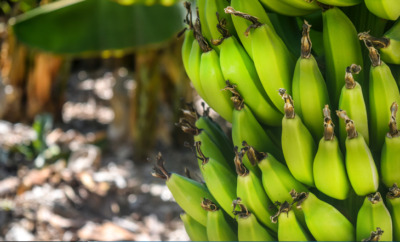8 Signs You May Have a Candida Infection and How to Heal Naturally

You may be asking yourself, “How do I know if I have a candida infection?” Some of you may be asking, “What exactly is candida, anyway?”
Candida is a type of yeast produced by the body to help with nutrient absorption and digestion. When overgrown, however, yeast can cause various health issues ranging from digestive problems and leaky gut syndrome to mood swings and depression.
In severe cases, this can cause candida overgrowth syndrome, also known as COS – when candida spreads all over your body.
Causes of Candida Infections
Candida infections can be caused by eating a diet high in refined carbohydrates and sugar, excessive alcohol intake, taking oral contraceptives, and taking certain antibiotics that kill good bacteria – which is essential for digestion and keeping candida at a healthy level.
8 Signs You May Have a Candida Infection:
One of the main reasons candida is so difficult to diagnose is that it’s linked to a wide range of health issues.
1. Urinary tract infections and vaginal infections
If you are consistently having issues in these areas, candida may be the reason. Candida can also be sexually transmitted, and can be passed back and forth between partners.
2. Sinus and allergy issues
Have you been experiencing seasonal allergies and flu-like symptoms? Candida impacts the sinuses, so if you are noticing symptoms in that area, you may want to consult with your doctor to find out if candida is the source of the problem.
Want more help with sinus issues? Practice These 5 Yoga Poses to Relieve Allergies and Sinus Pressure
3. Skin and nail fungal infections
Toenail fungus, athlete’s foot, and ringworm are among the common yeast infections associated with candida overgrowth.
4. Digestive problems
Intestinal issues are one of the main symptoms linked to a candida infection. This includes constipation, bloating and diarrhea.
If you’re looking for digestive support, check out this Simple, Holistic and Practical Guide to Healthy Digestion
5. Brain fog
Difficulty concentrating, poor memory and lack of focus can be signs of candida.
6. Chronic fatigue
If you’ve been feeling exhausted often, despite the amount of sleep you get, you may have Chronic Fatigue Syndrome (CFS). Accompanied by additional symptoms such as headaches, sore throat, and joint pain, CFS typically lasts six months or more.
7. Mood swings
Anxiety, depression and panic attacks can be the byproduct of candida overgrowth.
8. Cravings for sugar and refined carbohydrates
Since candida is linked to problems in the gut, your body will start to crave foods high in sugar, along with refined carbohydrates.
Treating Candida Overgrowth with Beta-Glucanase – What You Need to Know
Beta-Glucanase is a group of carbohydrate enzymes, responsible for breaking down glycosidic bonds within beta-glucan.
Beta-glucans work as an intestinal fiber, found to be especially useful in decreasing the coating of candida that can develop in the digestive tract.
Beta glucans trigger the release of neutrophils and macrophage – the immune system cells which help eliminate fungi and fight foreign bacteria and viruses. This is useful for treating yeast, candida, and fungal infections.
There are many health benefits linked to Beta 1,3D glucans:
- Boosts your immune system and protects the body from the flu and other viruses
- Increases communication between cells to help immune system locate toxic cells
- Lowers your risk of heart disease
- Assists in stabilizing LDL Cholesterol levels
- Extends your lifespan by up to six years
When we have more beta-glucanase in the system, candida is more prone to fungal cleansing agents. Numerous studies on enzymes have been conducted and the majority of findings suggest that beta-glucanase can aid in digestion and intestinal function.
The Global Healing Center reports that, “Beta glucanase hydrolyzes these glucans, reducing viscosity, and helping to revitalize natural peristalsis. This enhances the digestive process, increasing the overall nutritional value of your food.”
According to another study done on anthrax and mice, researchers found that beta glucans for yeast stimulate the production and activation of white blood cells in the bone marrow. This leads to elevated levels of neutrophils and macrophages, which are the immune system’s first line of defense to protect the body against infections.
In another study in the journal Blood, beta glucan increased the survival rate and improved the white blood cell recovery rate in mice exposed to radiation.
Researchers explored the effect of the soluble blood protein, complement, and complement receptor 3 (CR3) in bone marrow injury and repair. The researchers found that beta glucan stimulates the production of stem cells, aiding in white blood cell repair.
Over the span of 12 days, mice were treated with beta glucan and exposed to radiation. The mice who were treated with beta glucan had approximately 40 percent more cell formation units in the spleen compared to the mice who were not treated.
Therefore, it’s essential to incorporate foods with beta-glucanase enzyme in your diet. Candida-fighting foods include:
- Mushrooms
- Garlic
- Onions
- Coconut oil
- Ginger
- Lemons and limes
- Seaweed
- Rutabaga
- Pumpkin seeds
Banish Your Candida Symptoms and Bring Your Body Back into Balance
These foods help heal your intestinal walls, cleanse your digestive tract and strengthen your immune system. There are also specific recipes to help improve candida which you can research and find online.
In a few weeks, the candida should leave your system and you will notice a boost in energy. After your symptoms have lessened, you should maintain a diet that is high in vegetables and protein, and cut out sugars and starches.
All included information is not intended to treat or diagnose. The views expressed are those of the author and should be attributed solely to the author. For medical questions, please consult your healthcare provider.




























Comments